Passive Solar Gains - Passive House Windows - What do You need to know?
The most important part of every Passive House building are windows. They provide the possibility to accumulate passive solar gains and go down in heating need.
Until around 40-50 years ago single layer glazing was a standard. Those were very cold windows. Single layer of glazing provides very little insulation. One typical size window (let's say 1,4x1,2m) caused such high energy losses that a building needed around 60 litres of heating oil per window per year! Single layer of glazing lost heat very fast so it was typical to get frost patterns on the windows due to extremely low temperature of the surface. U value of a typical such window is around 5,5 W/m2K
The window producers added a second layer of glazing. This helped a lot! Between the glazing layers there was an air layer which insulated the window much better. Heat losses were halved . Now the windows were warm enough not to get frost patterns but they were still cold enough for dew drops to appear on colder days (the dew point is the temperature to which air must be cooled to become saturated with water vapor - then the dews are starting to appear on cold surfaces). U value of a typical such window is around 2,8 W/m2K.
Next step was the addition of thin low emmision film called "low-e". This reduced the heat radiation between the two layers of glazings by a big amount.
After that the air has been replaced by specific gas (krypton or argon) resulting in a window that reached a U value of around 1,7-1,3 W/m2K. Now the windows were finally getting over the dew point, stopping most of the condensation.
Finally a third glass pane and better glazing spacers were added - resulting in windows with U value as low as 0,8-0,5 W/m2K. Comparing to the first window - the energy losses have been reduced around 7 times!
The passive house windows imrpoves the thermal comfort of the building owners. The interior surface temperature do not go below 17 oC (Celsius).
There is finally no need for a radiator under the window as the losses are very small!
The second important parameter is g-value. The g-value represents percentage of solar radiation entering the building. Common values for windows are between 0.2 and 0.7 (with 1.0 meaning 100% entering inside). The passive house windows need to have the g-value not smaller than 0.5.
Why? Passive house windows act like radiators. The high level of insulation they provide combined with high solar transmittance allows them to gain more nergy than they lose!

This image shows typical heat losses (blue) and solar gains (red) of a passive house window. We can see that if the window is positioned properly - it gains more energy than it losses!
That is all for today's blogpost! Please ask questions in comments!
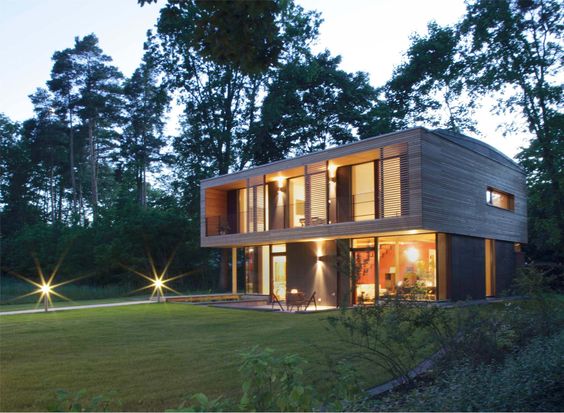
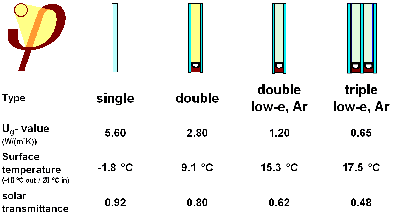
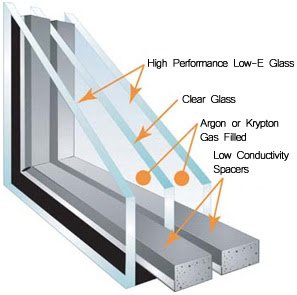
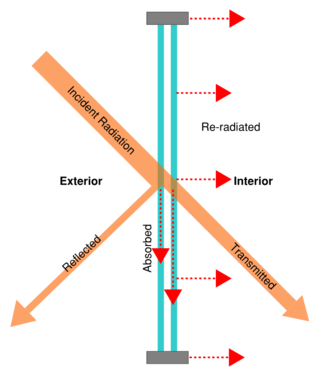
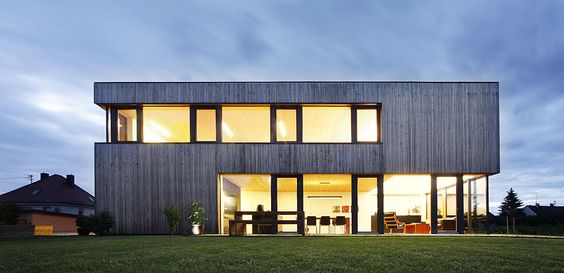
Great post!
In my home after replace windows and renovation facade i don't need turn on heating. I live in block of flats form 80' on the ground floor. The change was huge.
Naprawdę napisz coś w swoim ojczystym języku. Twoje wpisy są świetne!
Dzięki! Najpierw może zacznę od przetłumaczenia tych dwóch ostatnich wpisów :)
Czekam :D
Ja także czekam. Pamiętaj aby oznaczyć wpisy po polsku tagiem "polish" jako pierwszym. ;)
@originalworks
The @OriginalWorks bot has determined this post by @curiosit to be original material and upvoted(1.5%) it!
To call @OriginalWorks, simply reply to any post with @originalworks or !originalworks in your message!
Window screens are essential for window frames and other types of windows to let in fresh air and keep out insects. If your windows are cracked or otherwise damaged, they may not do their job. You should check out Window Screen Replacement in Santa Monica so that if your windows break, you know where to go for help.